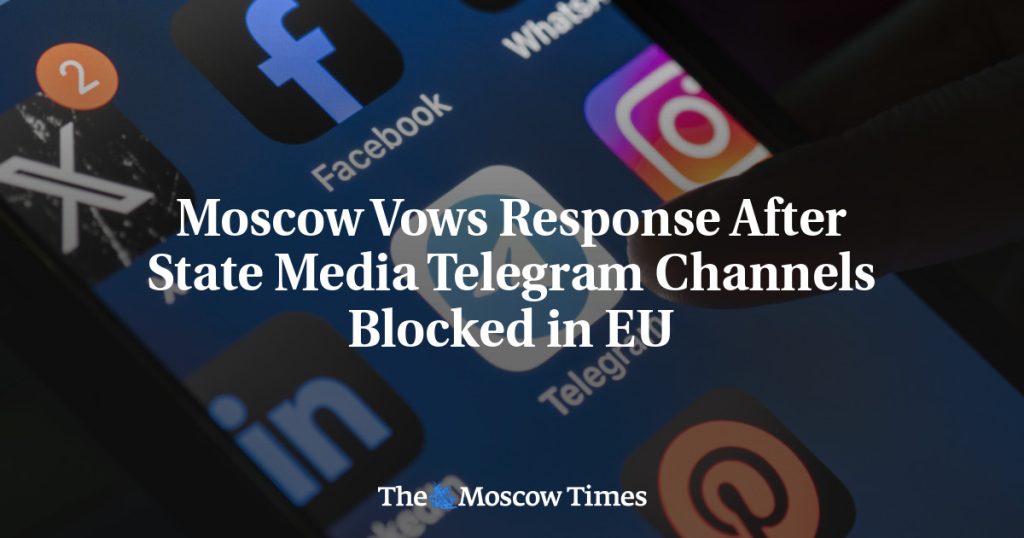Russian state media channels on Telegram were blocked for users within the European Union, leading to a promise of retaliation from Moscow authorities. The affected channels included those of RIA Novosti, Rossiya 1, Channel One, NTV, Izvestia, and Rossiyskaya Gazeta. Despite no official comments from Telegram or European officials, Moscow condemned the blocking as an act of censorship and part of a wider campaign to silence Russian media in Europe. Foreign Ministry spokeswoman Maria Zakharova labeled it as a systematic cleansing of undesirable sources of information and vowed that Russia would respond in kind to such actions.
The EU had previously banned Russian state media outlets from being distributed in the bloc, accusing them of disseminating propaganda. These actions have been part of a broader push to crack down on what is perceived as misinformation and interference in European affairs by Russian media. The blocking of Telegram channels is seen as the latest escalation in tensions between Russia and the EU regarding media freedoms and information dissemination. Moscow’s vow to retaliate suggests that the situation is likely to escalate further in the coming days.
The move to block Russian state media channels on Telegram is not isolated but part of a wider trend of restricting access to information and controlling the narrative in the digital age. Governments around the world are increasingly using technological means to limit the flow of information and suppress dissenting voices. The case of Russia and the EU is just one example of this global phenomenon, where social media platforms and messaging apps are used as battlegrounds for influence and control over public opinion.
The blocking of Russian state media channels on Telegram raises questions about the balance between freedom of speech and the regulation of online content. While countries have a legitimate interest in preventing the spread of propaganda and disinformation, censorship also runs the risk of infringing on the rights of individuals to access diverse sources of information. In the case of Russia and the EU, the blocking of channels could be seen as a violation of media freedom and an attempt to control the narrative on both sides of the conflict.
The response from Moscow, vowing to retaliate in a similar manner, indicates a tit-for-tat escalation that could further strain relations between Russia and the EU. The use of digital tools and social media platforms as weapons in geopolitical conflicts adds a new dimension to international relations and complicates efforts to find common ground. As governments grapple with the challenges of regulating online content while upholding freedom of expression, the case of Russian state media channels on Telegram serves as a reminder of the complex interplay between technology, politics, and media freedom in the digital age.
Ultimately, the blocking of Russian state media channels on Telegram highlights the ongoing battle for control over information and narrative in the digital age. As governments and tech companies navigate the complexities of regulating online content, the tension between freedom of speech and the need to combat propaganda and disinformation will continue to shape the landscape of media freedom and information access. The case of Russia and the EU is just one chapter in a larger story of how technology is reshaping the way information is disseminated, and how governments are responding to the challenges and opportunities presented by the digital revolution.


